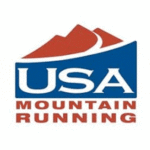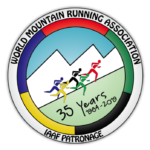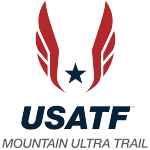
Written by David Melly. Photos by Austin Louden.
In the ultramarathon world, patience tends to pay off. The methodical often outlast the eager, and the second half of most races looks very different than the first. Individual results and team rankings can swing wildly by huge margins in the final miles… for better or for worse.
The twelve athletes representing Team USATF at the 31st IAU World 100 km Championships came to Bernau, Germany with a common purpose but left with a mixed bag of different results. For some, it was a performance of a lifetime. For others, it was a day to forget. Ultimately, where individual guts and glory are often given the most attention, the team performance from the stellar American woman is what we’ll all remember.
Headed into a busy weekend in the ultra world, Team USA’s mountain-ultra-talent were spread across the 100 km championships, the Comrades Marathon, Ultra-Trail du Mont Blanc, and the Challenge Stellina mountain race. Familiar names like multi-American record holders Jim Walmsley and Camille Herron opted for other races, paving the way for a scrappy mix of talented veterans and newbies to pack up their shoes and headto Berlin to take on the world’s best, headlined by formidable teams from Japan, France, and South Africa.

Photo: Austin Louden.
On the men’s side, the early miles of the race were dominated by a young Frenchman, the 24-year-old Guillaume Ruel, who chased world record pace for over 50km before fading to 5th in the final standings. The Americans were led by trail specialist Kris Brown, the trail specialist with a 6:39 personal best over 100 km, who completed 7 of the 13 7.5km laps in under 30 minutes before the wheels came off the wagon. After a quick conference with the Team USA medical staff at the aid decision, he decided to continue on, albeit at a walk-jog, before finding a second wind around 75km into the race and rebounding to finish 3rd for the team.
When Brown began to fade, it was New Hampshire’s own Eric LiPuma who took over top American duties, hovering around the top 15 for much of the race before the fatigue and the miles took their toll. He ultimately finished 29th as the top American in 6:53:33, the only U.S. finisher under 7 hours and in the top 30. Behind him, the second and fourth men’s finishers were a pair of reliable and experienced runners in Geoff Burns and Rajpaul Pannu, both of whom sit in the top-5 all-time Americans at 100 km. Burns ran the steadiest race of any of the men, keeping all of his laps between 30 and 35 minutes and slowly moving up the rankings as other racers fell apart or dropped out. Pannu slowed a bit over the last several laps, but still managed to hang on for a respectable 7:23:19 finish.
The runners with the speediest short-distance PBs suffered the most on the men’s side, with 2:15 marathoner Craig Hunt, who’d battled injuries all season, dropping out just before halfway and U.S. 100km champion Zack Beavin making it 75km before a sharp pain in his plantar left him unable to continue. While flat and relatively sheltered from win, the 62-mile course was bound to claim a few victims along the way by virtue of the distance alone. When the dust settled, the American men finished a respectable, but somewhat disappointing, 12th place as a team, and several of its members certainly left Bernau wanting more.

Photo: Austin Louden.
The heroes of the day, however, were the sensational American women, who put on a masterclass of savvy racing and measured effort to take the team title. Led by veteran road racer Courtney Olsen, a Washington State native who boasts an impressive 2:36 marathon PB, the Americans stayed clear of a hot early pace. Early on, Liz Northern, Nicole Monette, and Sarah Cummings worked together as a pack to navigate the field (unfortunately, Sarah would eventually drop out with a bone injury), and their team tactics kept their efforts controlled while the early leaders began to suffer. Olsen ran fearlessly, at one point sitting in third place for the middle laps, ultimately finishing 4th overall in 7:15:29, the third-fastest time ever run by an American woman.
The most impressive run on Team USA, however, has to belong to Anna Kacius. The San Francisco-based runner, who entered with an 8:12:38 personal best at 100km, achieved a rare phenomenon in road ultra running: she negative-split her race. In fact, her three fastest laps of the 13-lap course were her 11th, 12th, and 13th lap, her final being her fastest at 6:47/mile pace. She also looked the most comfortable of any runner on Team USA, flashing big smiles at the support crew late in the race when most runners could hardly muster a grimace. She finished 7th overall, picking off dozens of runners over the course of the competition.
Kacius’s and Monette’s race execution ended up being essential for the team victory. With 16 km remaining, the Japanese team led the team competition by a combined 20 seconds over Team USA. One lap later, Team USA led by around 3 minutes. Kacius, the team’s 2nd runner, passed both the 2nd and 3rd Japanese runners in the final third of the race, and Monette passed the 3rd Japanese runner to become Team USA’s third scorer. Ultimately, the U.S. women finished nearly 13 minutes ahead of Japan.

Photo: Austin Louden.
The Americans weren’t the only ones moving up, however – Floriane Hot, the individual champion from France, moved from 5th to 1st over the second half of the race. Her teammate, Camille Chaigneau, who led much of the race early, held on to secure a French 1-2. But the team scoring for the World 100km Championship is based on each team’s top three runners’ cumulative time, not place, so as the minutes ticked on and France’s third finisher hovered around 30th place, it became clear that, despite the large gap, the biggest threat to the U.S. team title was France, not Japan.
As the clock ticked past 8 hours and 4 minutes, the buffer Team USA needed to win, the coaches, athletes, and crew of Team USA began to celebrate the victory. The race was not over, however: Kalie Demerjian, the U.S. 100km champion, was battling step by step through a calf injury to make it to the finish line. As shuttle buses began to depart for the hotel, the women of Team USA kept their eyes glued to the final turn of the course, refusing to truly start the celebration until their teammate was done. Demerjian ultimately battled to a 8:56:04 finish, and after the medical team was done attending to her, she finally got the news: she was a world champion.
The U.S. women’s top-10 list should get some serious rewriting as Olsen, Kacius, and Monette all finished with top-10 all-time marks. However, there may be some uncertainty about the veracity of the results, as a measurement error in the non-looped part of the course led to a mid-race adjustment, where officials instructed runners to complete an additional 800-meter loop to fully complete the 100 kilometer distance. The unfortunate error may call the course’s certification into question, but the quality of the performances is undoubtable. On a humid, misty day in a small town north of Berlin, the U.S. women made history.

Photo: Austin Louden.
After two years of pandemic-related cancellations, it was a welcome sight to see the rainbow of uniforms flowing through the course and to hear the multilingual shouts of encouragement from the sidelines. 45 nations from every corner of the globe descended on Berlin and were greeted with warmth, enthusiasm, and respect by their German hosts. Although some runners went home elated and others devastated, everyone – from the runners, to the coaches, to the support staff, to the families and fans – was treated to a once-in-a-lifetime experience.
Complete individual results [PDF]
Women’s team results [PDF]
Men’s team results [PDF]










